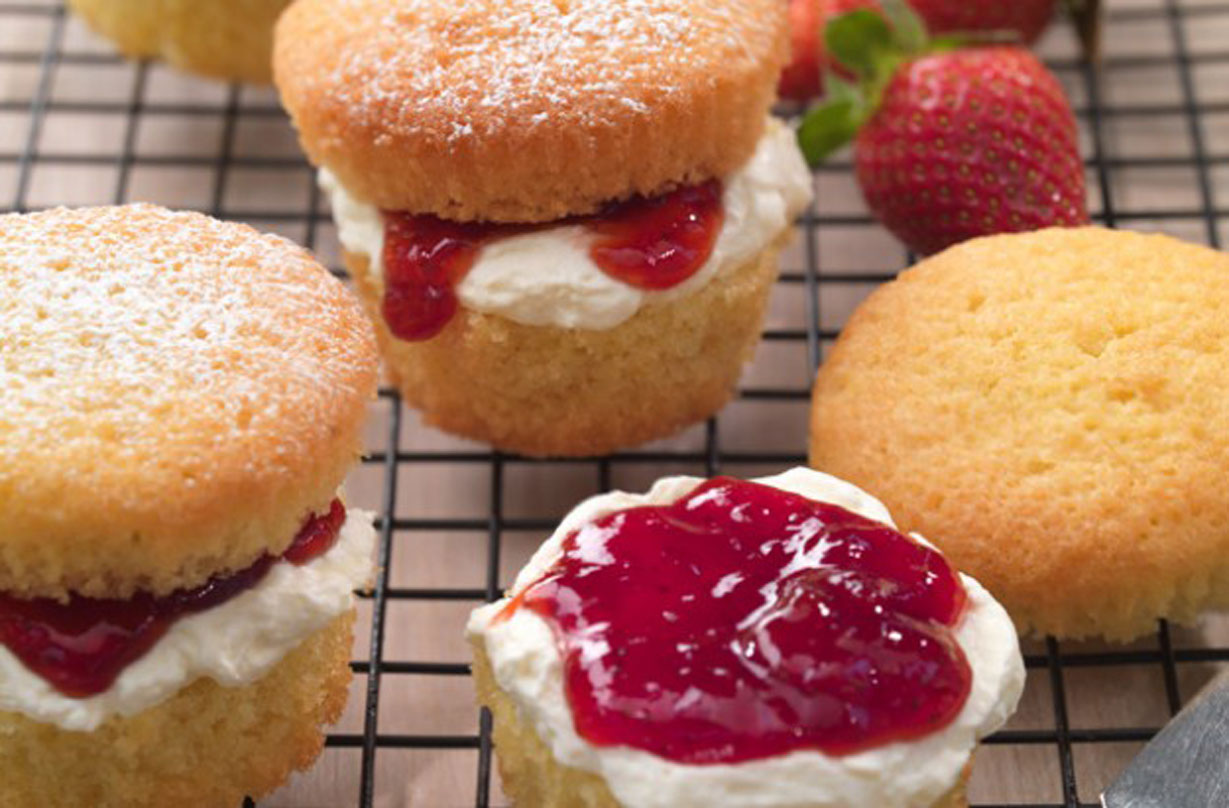Parenting advice, hot topics, best buys and family finance tips delivered straight to your inbox.
You are now subscribed
Your newsletter sign-up was successful
These mini Victoria sponges are the perfect sweet treat for any occasion and the look so sweet arrange on a cake plate together.
They are great for summer garden parties or street celebrations, and they're really simple to make - in fact, they're probably one of the simplest cakes around. Always popular with kids and grown ups. These individual sponges take around 35 mins to prepare and cook. You can make 12-14 delicious cakes with this recipe. Fill each of your mini sponges with sweet strawberry jam and a generous spoonful of whipped cream. Then simply dust with icing sugar before serving, or, for the more traditional flourish, use caster sugar to dust so you get a little crunch as you bite in.
Ingredients
- 225g baking liquid or softened margarine
- 225g caster sugar
- 4 eggs, medium
- 225g self-raising flour, sifted
- 1 tsp baking powder
- 2 tbsp jam
- 150ml whipping cream, whipped
- Caster or Icing sugar, to dredge
WEIGHT CONVERTER
Method
- Place all the ingredients up to the baking powder in a mixing bowl and beat together until smooth.
- Place heaped tablespoons of the mix in 12 muffins cases.
- Bake in the centre of the preheated oven at 180°C/350°F/Gas Mark 4 for 20-25 minutes.
- Turn out, remove paper and cool on wire tray. When cold remove the cakes from the cases and cut in half horizontally.
- Fill with the jam and whipped cream and a dusting of icing sugar.
Top tip for making mini Victoria sponges
To make your mini sponges the classic cylinder shape of a larger sponge, you can buy mini sponge cake tins (from cookshops, Lakeland or Hobbycraft, for example). As long as it's a non-stick tray, you can bake directly into the tin, as long as you have greased it well.
You might also like...
Parenting advice, hot topics, best buys and family finance tips delivered straight to your inbox.

Octavia Lillywhite is an award-winning food and lifestyle journalist with over 15 years of experience. With a passion for creating beautiful, tasty family meals that don’t use hundreds of ingredients or anything you have to source from obscure websites, she’s a champion of local and seasonal foods, using up leftovers and composting, which, she maintains, is probably the most important thing we all can do to protect the environment.

